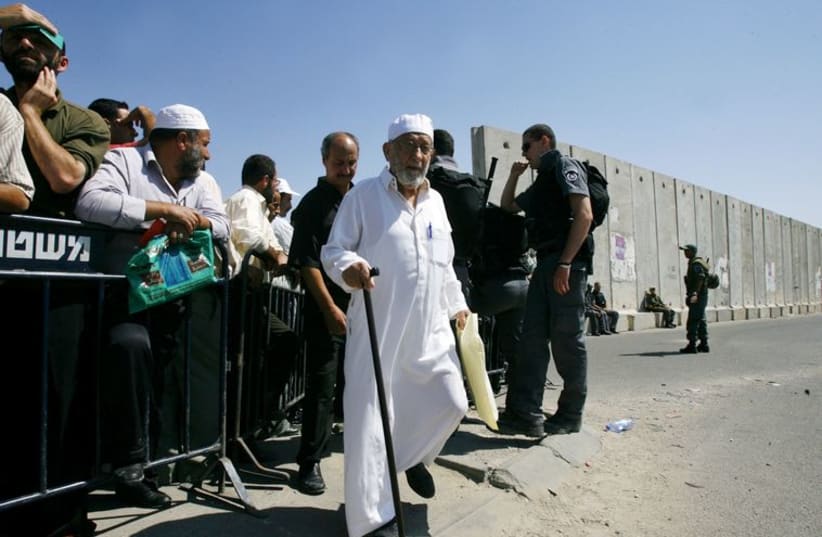Left-wing screams apartheid over new security edict for Palestinian laborers
Program would require Palestinian workers from the West Bank to head home at night through same IDF manned passageway through which they entered; new edict makes use of Israeli buses cumbersome.
